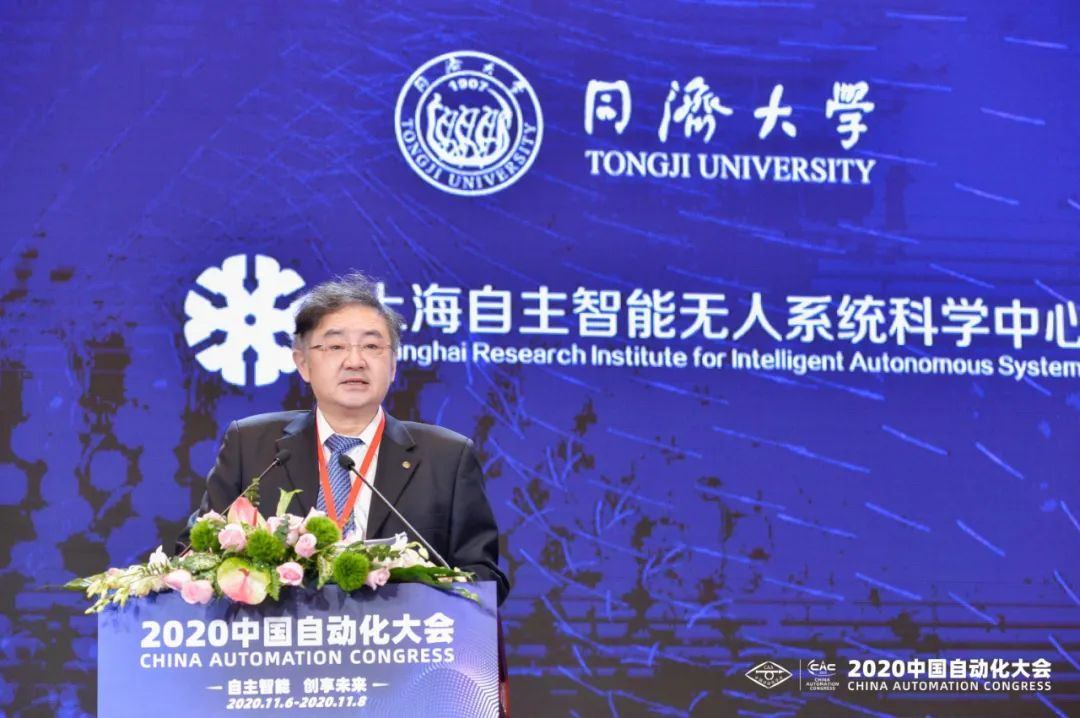The 2020 China Automation Conference on "Creating a Shared Future with Independent Intelligence" was held in Shanghai
The discipline of automation is standing at a new "trend" and is expected to drive a profound transformation of the times. This conference can be regarded as a gathering of talented individuals, with over 20 academicians attending alone.
On November 7th, the 2020 China Automation Conference was grandly held in Shanghai. With the theme of "Creating a Future with Independent Intelligence" and closely following the major needs of the country and the pulse of the times, this conference can be regarded as a gathering of talented individuals. More than 20 academicians attended the conference alone, as well as scholars and experts from the fields of automation and artificial intelligence in China, relevant officials from government departments, and industry elites. It is also reported that the conference hosted by the Chinese Society of Automation received over 1700 conference papers.
This may be the largest academic event held in this city under the normalization of epidemic prevention and control. On the premise of strictly following epidemic prevention regulations and ensuring social safety distance, the attending representatives enthusiastically exchanged ideas. "A person in charge of organizing this forum said in an interview with reporters," I didn't expect "-" I didn't expect everyone's enthusiasm for attending to be so high
From the overwhelming popularity and enthusiastic academic discussion atmosphere, there is an exceptionally clear signal: currently, the rapid development of artificial intelligence, big data, and the Internet of Things technology, as well as the deep integration of new generation information technology and manufacturing industry, is triggering a profound industrial transformation. Automation and intelligence are widely recognized by academia as strong driving forces for the transformation of this industry.
To seize the high ground of automation and artificial intelligence development, what key issues do basic research need to further focus on and form breakthroughs in; Shanghai is accelerating the construction of a globally influential science and technology innovation center. While continuing to increase investment, how to further optimize the ecosystem, enhance the innovation capability and level of artificial intelligence technology, and make greater contributions to enhancing the source function and core competitiveness of scientific and technological innovation... On this high-end dialogue platform, experts from government, industry, academia, and research warmly exchange ideas and discuss the future.

It is believed that to accelerate the pace of technological innovation during the 14th Five Year Plan period, it is necessary to persistently strengthen basic research and promote more interdisciplinary integration to better adapt to the new paradigm of technological innovation.
The discipline of automation is standing at a new "trend" and is expected to drive a profound transformation of the times.
"Since American scientists founded cybernetics in the last century, the influence of control and automation disciplines has crossed the boundaries of disciplines, becoming an important condition and a significant symbol of human civilization progress and modernization." Zheng Nanning, president of the Chinese Association of Automation and academician of the CAE Member, introduced that in recent years, with the continuous progress of modern science and technology, automation, artificial intelligence and the Internet have bred the fourth industrial revolution, especially the deep integration of the new generation of information technology and manufacturing, and accelerated industrial reform. The development of technology cannot be separated from innovation. Automation science and engineering are not only the strongest driving force for technological change, but also a powerful support for building a strong technological country.
When attending this forum, Zheng Nanning condensed two basic questions that must be answered in the development of the new generation of artificial intelligence: first, to answer what are the unique characteristics of human intelligence; The second is to observe and understand the world like humans. What abilities do computers need to possess? There are countless examples of how humans rely on common sense to judge the properties or changes of things, and can exhibit intelligent behavior on a wide range of problems with very little data. In daily life, hats with different shapes and functions, such as sun hats, safety helmets, straw hats, etc., can be recognized immediately by people with common sense, but for computers, this is a topic that requires a lot of data to "learn" well. From an academic perspective, this problem aims to achieve recognition of object attribute category combinations. There are approximately 30000 types of objects designed in people's daily lives, and each object has multiple attributes. When attributes are combined with objects, there is an exponential explosion problem. For example, it is easy for people to judge a broken phone and a phone with scratches on the screen surface, but accurate recognition by machines also involves the expression and transfer of specific concepts in modeling. Zheng Nanning's team is currently working on related topics to enable computers to have the same common sense reasoning and object attribute recognition abilities as humans, and to teach computers to learn like humans.
